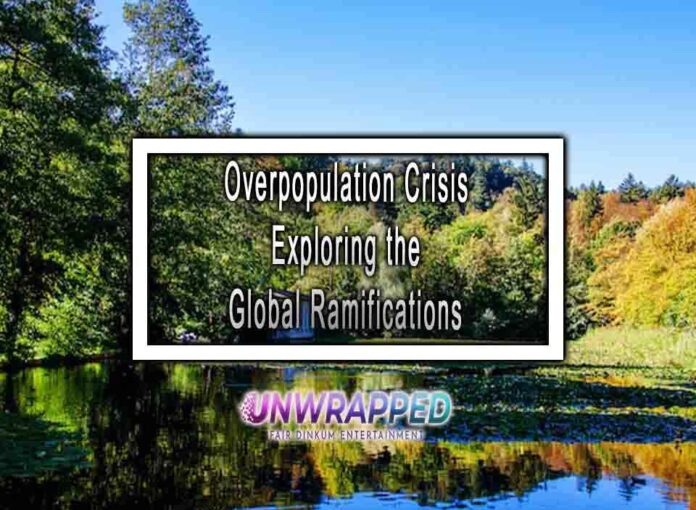Overpopulation is a complex and multifaceted issue with global ramifications. While the topic has been debated for decades, it remains a critical concern due to its potential impacts on various aspects of human life and the environment. Here are some of the key global ramifications of overpopulation:
Resource Depletion:
- Overpopulation puts immense pressure on natural resources such as water, arable land, forests, and minerals. As the population grows, the demand for these resources increases, leading to over-exploitation and depletion.
Environmental Degradation:
- Increased human activity associated with overpopulation contributes to deforestation, habitat destruction, and pollution. This leads to biodiversity loss, climate change, and other environmental crises, impacting ecosystems on a global scale.

- Increased human activity associated with overpopulation contributes to deforestation, habitat destruction, and pollution. This leads to biodiversity loss, climate change, and other environmental crises, impacting ecosystems on a global scale.
Food Security Challenges:
- The growing population strains global food production systems. Increased demand for food can lead to overfishing, monoculture, and the depletion of soil fertility, affecting the ability to feed the world’s population sustainably.
Water Scarcity:
- Overpopulation exacerbates water scarcity issues, particularly in regions already facing water stress. Increased demand for water for agriculture, industry, and domestic use can lead to the depletion of aquifers and reduced water availability.
Climate Change:
- The carbon footprint of a larger population contributes to climate change. Increased emissions from transportation, industry, and energy production amplify global warming, leading to more frequent and severe weather events with widespread consequences.
Strain on Infrastructure:
- Rapid population growth puts a strain on infrastructure such as transportation, healthcare, education, and housing. Overcrowded cities face challenges in providing essential services and maintaining a high quality of life for residents.
Social and Economic Inequality:
- Overpopulation can exacerbate social and economic inequalities. Limited resources may lead to competition for jobs, education, and healthcare, resulting in disparities between different segments of the population.
Migration Pressures:
- Overpopulation, coupled with resource depletion and environmental degradation, can contribute to increased migration. People may be forced to leave their homes in search of better opportunities and living conditions, leading to social and political challenges.
Global Health Risks:
- Overpopulation increases the risk of the rapid spread of infectious diseases, as crowded living conditions provide ideal environments for the transmission of illnesses. This can have global health implications, especially in a highly interconnected world.
Loss of Cultural and Historical Heritage:
- Rapid urbanization and population growth can lead to the destruction of cultural and historical sites. The need for space and resources may result in the neglect or demolition of heritage structures.
Addressing the challenges posed by overpopulation requires a combination of sustainable development practices, responsible resource management, and population control measures. Education, access to family planning, and international cooperation are essential components of any comprehensive strategy to mitigate the global ramifications of overpopulation. Sustainable and equitable solutions are crucial to ensuring a balanced and resilient future for the planet and its inhabitants.












